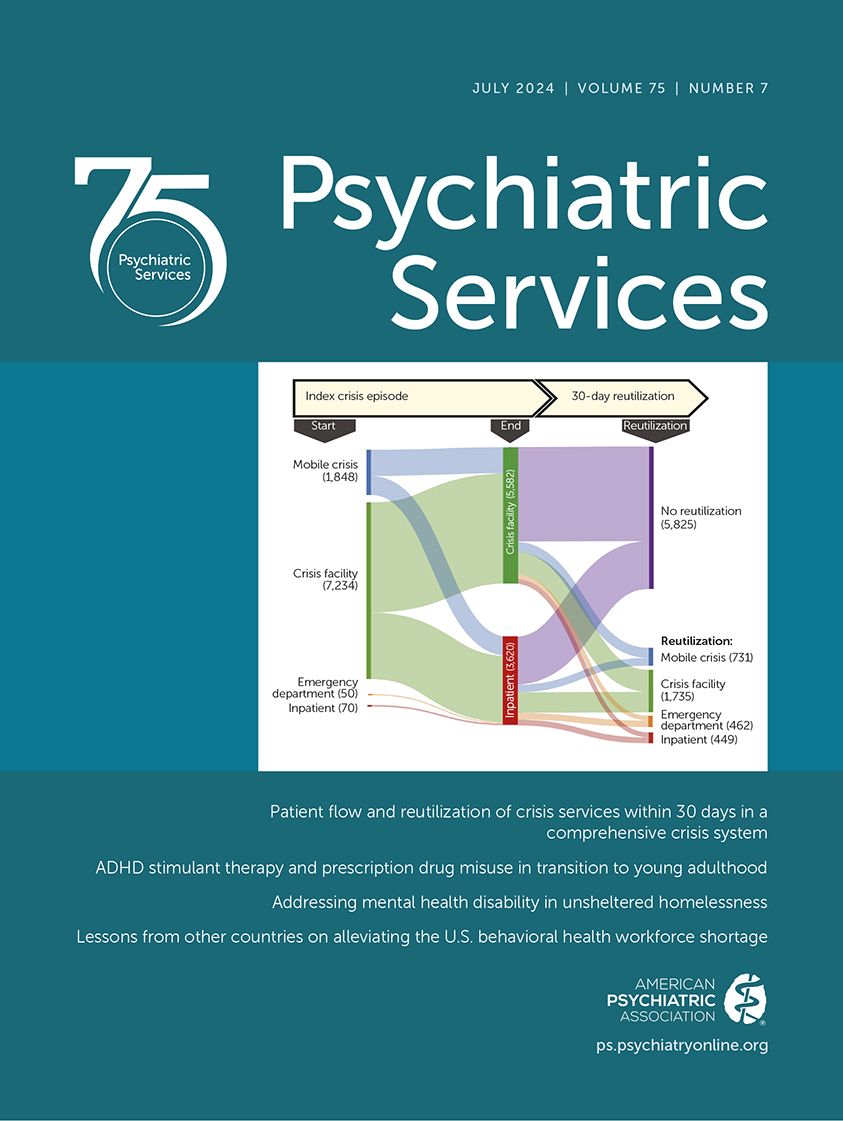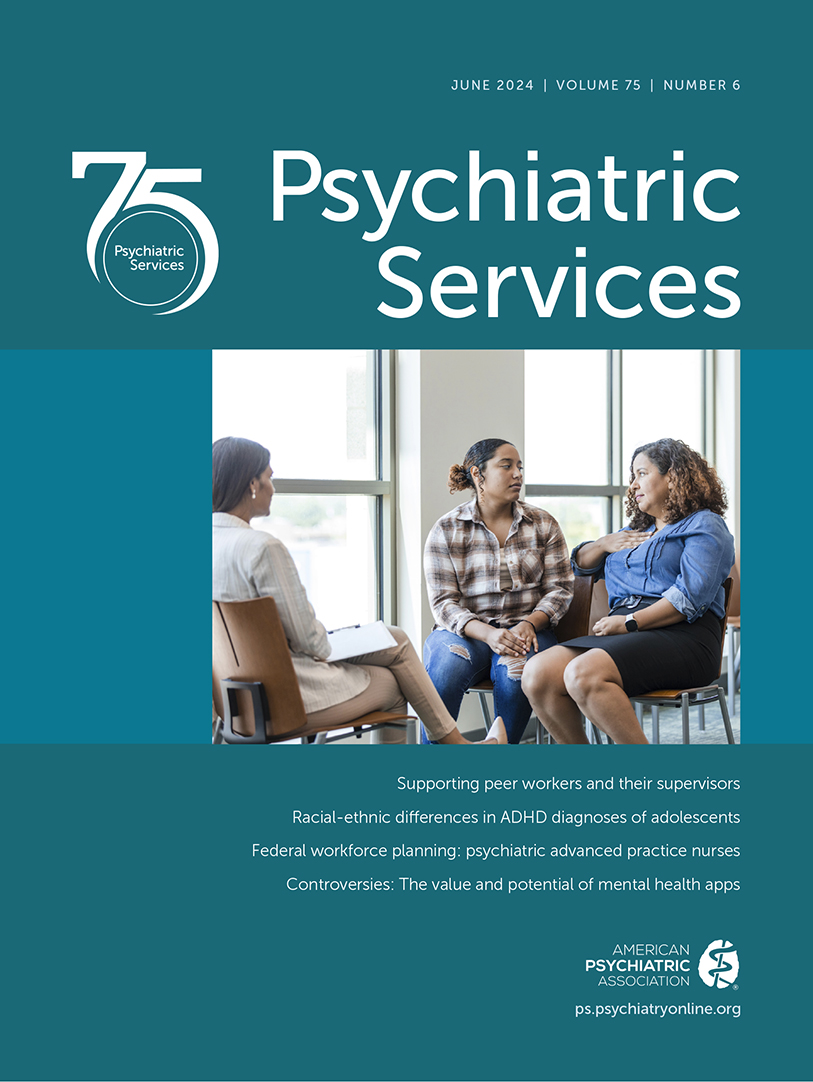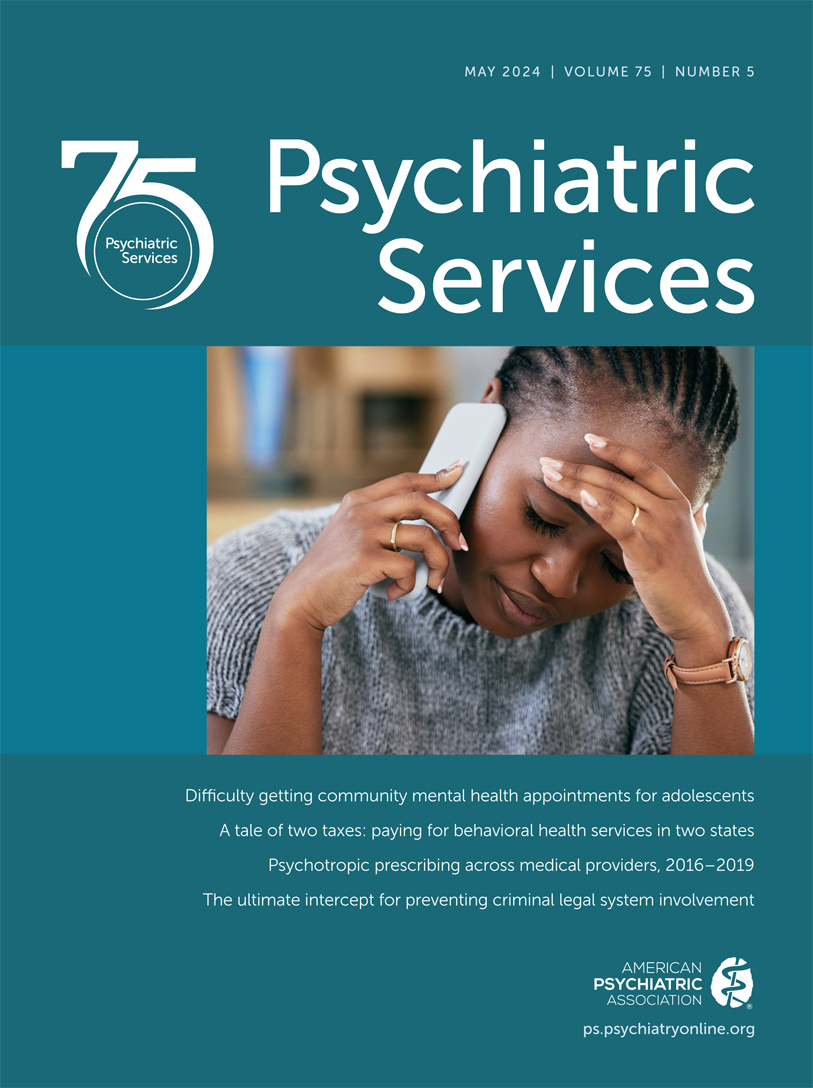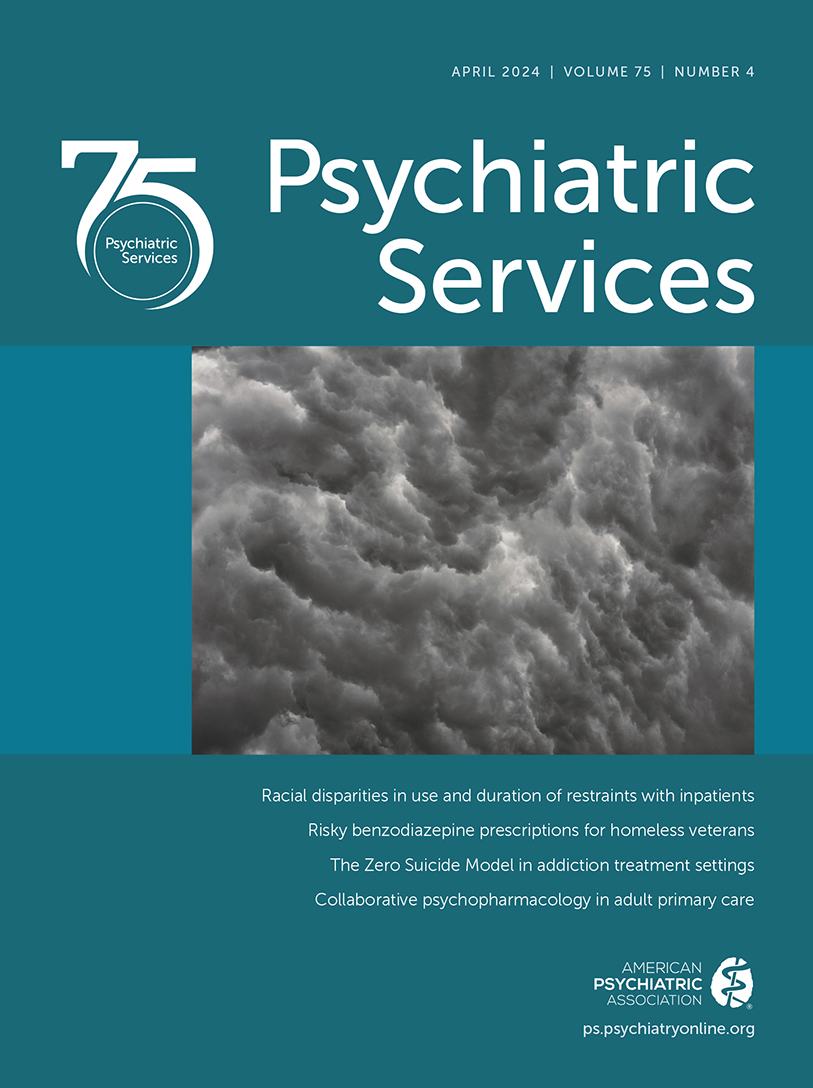Psychiatric Services
- Volume 25
- Number 5
- May 1974
Article
Publication date: 01 May 1974
Pages295–298The Veterans Administration has developed two types of programs to train paraprofessional workers known as mental health associates (MHAs). One is a 48-week hospital-based program that is equally divided between didactic and clinical training; it is ...
https://doi.org/10.1176/ps.25.5.295Publication date: 01 May 1974
Pages299–302A hospital-based training program for paraprofessional mental health workers focuses on maximizing their human-relations skills and providing continuous care to the patients from admission through discharge and readjustment to the community. In ...
https://doi.org/10.1176/ps.25.5.299Publication date: 01 May 1974
Pages303–305This study focused on the effectiveness of nonphysicians in providing care for outpatients suffering from manic-depressive disease. All the patients were participating in a longitudinal study of the potential of lithium in preventing affective illness. ...
https://doi.org/10.1176/ps.25.5.303Publication date: 01 May 1974
Pages305–307A Veterans Administration hospital in Florida makes extensive use of college students as paraprofessional workers on a psychiatric ward. The paraprofessionals, who are trained in behavior modification principles and techniques by a psychiatrist or ...
https://doi.org/10.1176/ps.25.5.305Publication date: 01 May 1974
Pages308–310In 1969 a community mental health center in Harlingen, Texas, began using indigenous mental health workers in a program considered highly successful by almost everyone involved. The role of the workers was only sketchily defined, allowing them ...
https://doi.org/10.1176/ps.25.5.308Publication date: 01 May 1974
Pages311–314In 1970 a 160-bed unit previously oriented toward custodial care began to actively treat supposedly hopeless chronic schizophrenic men, with the goal of increasing their release rate from the hospital. The unit conceptualized schizophrenia as a social-...
https://doi.org/10.1176/ps.25.5.311Publication date: 01 May 1974
Pages315–318If a psychiatric unit is to be effectively therapeutic, its staff must avoid the pitfalls that can turn it into a pseudotherapeutic community. The authors define a pseudotherapeutic community as a psychiatric unit that subscribes to a particular treatment ...
https://doi.org/10.1176/ps.25.5.315Past Issues
View Issues Archive
Vol. 75 | No. 7

Vol. 75 | No. 6

Vol. 75 | No. 5
